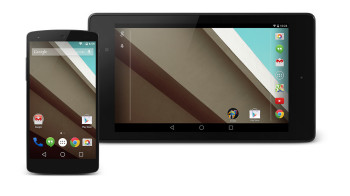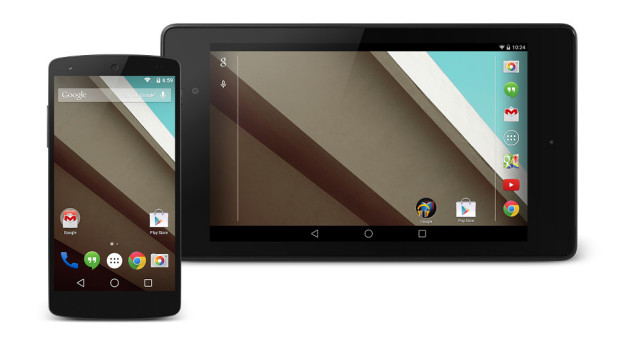
Here’s your full list of initial Android L features
Tomorrow is the big day for Android L, the next version of Google’s mobile OS. The Developer Preview was announced today, but no one can use it until tomorrow. What exactly does Android L add? Well, for starters, it has a completely redesigned look. The first big redesign since Android 4.0 Ice Cream Sandwich. The redesign is a big deal, but there is a buch of other good stuff, too. Check out this handy list of new things you can expect in Android L.
Material Design
The new design of Android is all about getting it ready to be on many different types of screens. The UI is super responsive to whatever orientation, size, or device it runs on. It’s colorful, bold, modern, and sleek. We’re not fans of the new navbar buttons, but everything else looks spiffy.
Better Multitasking View
Google has added something they call “Document-centric Recents.” This means when you press the multitasking button it will show more than just recent apps. It will also show the tabs you have open in Chrome, and other tasks that can be flipped through. This will make it easier to pick up where you left off.
Better Notifications
Notifications will now be shown right on the lockscreen without even having to swipe down on the notification drawer. users will be able to control what information is shown on the lockscreen, so no need to worry about sensitive notifications. New “heads-up” notifications will pop-up above whatever you’re doing.
Project Volta
From the makers of Project Butter comes “Project Volta.” This is new tools and APIs to help apps run efficiently and not drain battery life. This is a very important project for Android. Some apps just consume battery like crazy. Volta should help fix that.
Android Runtime.
In Android L the Android Runtime (ART) will be the new system default. ART offers ahead-of-time compilation, efficient garbage collection, and improved debugging features. Google says it will improve performance of a device with no action required by the dev.
The Rest
Bluetooth Low Energy Peripheral Mode will allow apps to broadcast their presence to nearby devices. Multi-networking will allow apps to work with the system to dynamically scan for networks with specific capabilities. A new camera API will give users the capability to YUV capture at full 8MP and 30FPS. it will also bring raw sensor data to Android. Last, but not least, is 64-bit support for apps.
We will learn much more about Android L by the time it gets a full release. We can expect the update to start rolling out to devices this fall. Hopefully by then we know what the “L” stands for. What features are you excited about? Do you like the new design?

